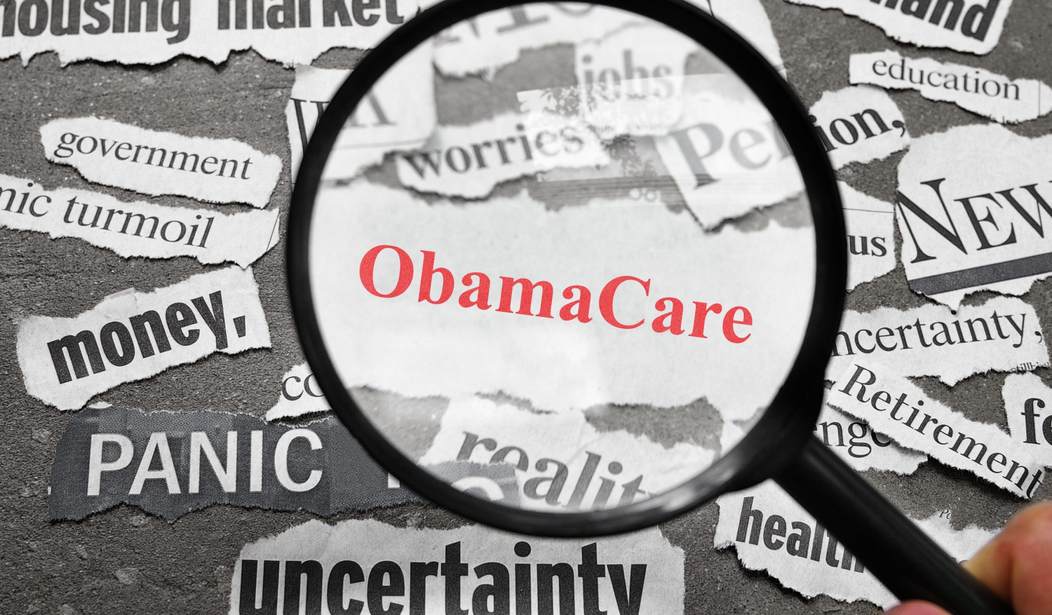The day after Barack Obama was elected president in 2008, I remember thinking to myself that I had seen this all before. I was reminded of the 1992 election when Bill Clinton was elected. To me the blueprint for what Republicans should do was clear. The first step was to take back the House of Representatives to block Obama’s legislative agenda. A strong repudiation in the midterm elections would cause Obama to pivot to the political center just as it had caused Clinton to after the wave election of 1994. There was one problem with that theory: Barack Obama is much more of an ideologue than Bill Clinton ever was. Which is why his administration went to great lengths to pass the laughably named “Affordable Care Act” in 2010. The fact the law was greatly unpopular among voters didn’t dissuade Obama and his handlers from their opening gambit one bit.
Republicans and conservatives predictably predicted that the law would be a fiasco. It had all kinds of nasty provisions in it such as caps on flexible spending account contributions (which people with chronic illnesses use to make their healthcare more affordable), a tax on life-saving and life-prolonging medical devices, and a mandate to buy insurance whether you wanted to or not. Rational observers understood immediately that the law basically shifted the burden from older and therefore sicker Americans to the younger and healthier ones that helped put Obama into office in the first place. Needless to say, when those young people saw their options, they said “no thanks.” You didn’t have to be prescient; you just had to be paying attention.
Countless articles were written, between the time of the law’s passing and the beginning of its implementation, about the likely insurance “death spiral.” In short, high premiums and deductibles would mean few takers and few takers would mean higher premiums and deductibles. The architects of Obamacare knew this was likely too and so they created an escape hatch called risk corridors. The federal government would become the financial backstop of the insurance industry just as it had become for the banks.
In January of 2011, newly elected Republican Senator Marco Rubio arrived in Washington to find an Obama administration that had not been chastened by the loss of many of its pawns in congress. There would be no pivot, no compromise.
The resulting gridlock has been an ugly one with many polarizing speeches, filibusters, and political preening. Most famously, Republican firebrand Senator Ted Cruz, in an act of futility, filibustered in favor of defunding Obamacare for more than 21 hours in September of 2013. A couple of months later, Rubio introduced equally futile legislation to eliminate the risk-corridor provisions of the ACA, calling them a “bailout” for insurance companies.
But Rubio didn’t stop working when his bill couldn’t get out of the still Democrat-controlled Senate. In October of last year, he wrote a letter to Speaker Boehner, urging him to include language to prevent the bailouts in the continuing resolution that was coming up for a vote in order to avoid yet another government shutdown. Moving this piece meant that, for once, Republicans were able to sneak one past their Democrat counterparts. Even the New York Times had to acknowledge the effectiveness of Rubio’s quiet tactics.
Now, as Congress once again is negotiating near the edge of a cliff, various parts of the ACA are under scrutiny. Specifically, the unpopular taxes on medical devices are under the microscope. Republicans want to kill these provisions, and Democrats seem happy to delay their enforcement, recognizing that they are political losers. But the Democrats, as is their wont, have already started making noises about a quid pro quo regarding the re-establishment of the risk corridors.
Now is the time for Republican lawmakers to keep their eyes open. Republicans need to make sure the Democrats don’t put the captured risk-corridors piece back on the game board.
It’s also time for Republican voters to evaluate the candidates they have before them. It’s been said that Republicans play checkers while Democrats play chess, and I’d add that some Republicans play checkers noisily, if not effectively. Heck, even Donald Trump recognizes that Ted Cruz’s tactics in the Senate tend to be maniacal and counterproductive. I can certainly see why former chess grand champion Garry Kasparov likes Marco Rubio.









Join the conversation as a VIP Member